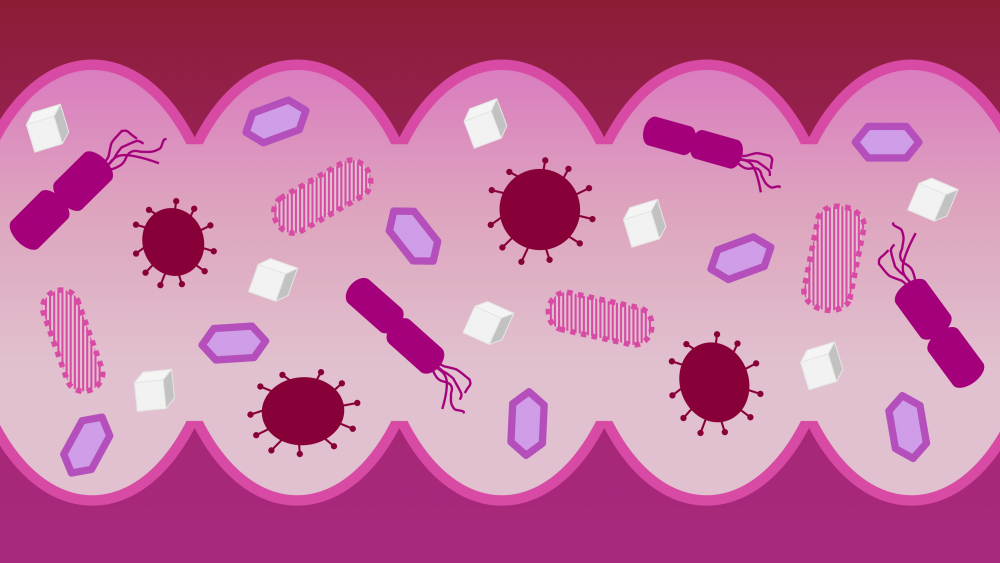A new article was recently published in the European Journal of Nutrition entitled Gut microbiota composition in relation to intake of added sugar, sugar-sweetened beverages and artificially sweetened beverages in the Malmö Offspring Study.
The role of the gut microbiota for health has been largely realized in the past years, and the public media is not shy of jumping to strong conslusions in regards to it. For example, have you ever heard that a high intake of added sugar or low-calorie sweeteners are not good for your small bacterial friends in your gut? I think a lot of people might. Which surely is interesting since this has been very scarcely studied in humans until now.
We studied 1371 individuals in the Malmö Offspring Study who had provided faecal samples to be analysed using 16S rRNA sequencing. After a lot of data processing, we ended up with 64 different bacterial genera to study. Participants had also performed a 4-day food record and a short food frequency questionnaire so we could study their intake of added sugar, sugar-sweetened beverages and artificially sweetened beverages.
We statistically evaluated if intake of added sugar (as well as with the support of the urinary sucrose and fructose biomarker as mentioned in a previous blog post), sugar-sweetened beverages and artificially sweetened beverages associated with any of the 64 bacterial genera or with various measures of microbiota composition and diversity, such as alpa diversity, beta diversity and the Firmicutes:Bacteroidetes ratio.
Our main findings are best summarized in the conclusion of the article as cited below. For more, please follow the link to the full article.
“In conclusion, many previous studies have discussed how intake of added sugar and sweetened beverages may increase cardiometabolic risk and our study can only find very modest support for that such risk could be partially acting through mechanisms involving the gut microbiota. After full covariate adjustment, we found an association between sugar-sweetened beverage intake and the Firmicutes:Bacteroidetes ratio, which previously has been linked to obesity. Among the 64 individual bacterial genera, only the inverse association between sugar-sweetened beverage intake and Lachnobacterium remained significant after adjustment of multiple testing. Both epidemiological and interventional studies, preferably with metagenomic sequencing and of larger study samples, are needed to further evaluate if a link exists between intake of sugars and sweeteners and the human gut microbiota.”

